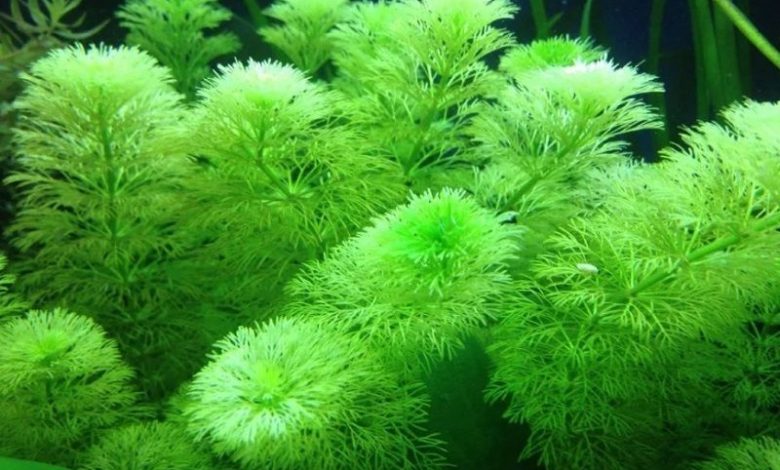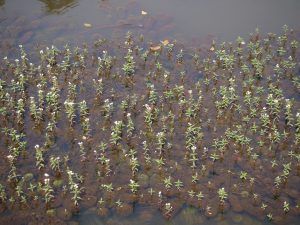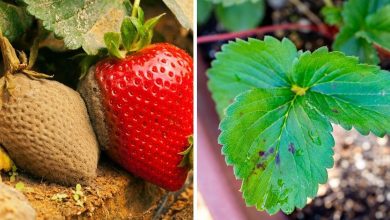Ambulia: [Care, Characteristics, Cultivation, Substrate and Pests]

Ambulia (Limnophila sessiliflora) is a species of plant used for aquatic purposes. She has a nice appearance and has minimal maintenance needs.
For people who enjoy having fish at home, this has become an ideal option, both to recreate habitat and for ornamental purposes.
Are you just starting out in this world or do you want to implement improvements for your fish tank? Attention because here we will talk about everything about ambulance.
Important points when sowing Ambulia
 When? By seeds, only in summer. When using division by cuttings – at any time.
When? By seeds, only in summer. When using division by cuttings – at any time.- Where? In a substrate for aquatic plants rich in iron.
- How do we prepare the land? It does not need soil but a substrate made of clay and fine gravel.
- How should we water? Having direct life in the water, it does not need irrigation.
- How often do you have to water? Never.
- What pests and diseases do they have? Rot.
Characteristics of the Ambulia
The ambulia is an aquatic species from Asia that easily adapts to aquariums. Its intense green color is the characteristic that stands out the most and that has made it so popular worldwide.
In fact, with the use of aquarium light sources, an intense and vivid image can be achieved , as if they were emeralds.
In terms of size, the plant usually reaches half a meter tall, so it is important to offer it ample space to grow.
Where should we plant the ambulia?
 The ambulia will need to be planted in an aquatic substrate that is soft because its roots are very delicate.
The ambulia will need to be planted in an aquatic substrate that is soft because its roots are very delicate.
It is also important that it contains a good level of iron since this will provide it with nutrients to grow healthy and be very green.
The pH of the water should be between 6 and 8.5 and the temperature should vary from 20 to 30º C to keep it alive and in good condition.
Although it is capable of withstanding sudden changes in temperature at some point, when it rises or falls a lot, the growth of the plant is slow.
Of course, you will also need a good light source, preferably white. The performance level of the light source should range from 0.7 to 1.5 watts as a recommended measure per liter of water.
When should ambulia be grown?
 The cultivation time will vary depending on the chosen reproduction method: either by seeds or by cuttings.
The cultivation time will vary depending on the chosen reproduction method: either by seeds or by cuttings.
In the case of seeds, these will be obtained from the ripe fruit, so it will only be possible in the summer season.
For cuttings, the situation is different since it will be kept under the same conditions as the mother plant, so it can be cultivated at any time of the year.
How do we prepare the land?
As it is an aquatic plant, it will not need soil preparation as we do with other garden species, but we do have to work on the subject of the substrate.
It is best to make a soft composition that allows the roots to be firm but not pressed as they break easily.
A good recommendation is to prepare a mixture of clay and fine gravel, which does not compact in the presence of moisture.
How to sow ambulia step by step?
- The main mechanism used for its reproduction is with cuttings that you must cut from the head of the stem.
- You will place this piece of plant in an optimal substrate for its needs and in a few days it will be able to take root.
- It is important that you remove all the leaves that are attached to the cutting to prevent the plant from suffering problems when its roots grow.
- In the event that reproduction by seeds is sought, this will be achieved in aquariums where the plant can develop out of water.
- In this way, it will be easier for it to reproduce the fruits and obtain the seeds when they mature.
- The seeds can reproduce normally in the chosen substrate for use in the aquarium.
- In any case, care must be taken that the planting is done leaving at least 30 centimeters between one plant and another.
- This is a much more necessary condition in the case of cuttings. The reason for this is to help each have their own nutrients and not restrict each other’s opportunities to access them.
What care does the ambulance need?
The main care will be oriented to pruning, subscriber, light, among others.
pruning
 The pruning will be carried out according to the particular conditions of the aquarium. If these are not very large, surely the pruning frequency will be higher.
The pruning will be carried out according to the particular conditions of the aquarium. If these are not very large, surely the pruning frequency will be higher.
In addition, the conditions that the plant will have for its development must be considered, since when these are optimal, it will grow faster.
All this is essential to keep it in the place we want, since in countries like India, for example, it is considered a pest due to its rapid growth.
Use of liquid fertilizers
To keep it always lush, the use of special liquid fertilizers for aquatic plants will be key.
Its use should be planned on a weekly basis, also including a payment around the stem on a monthly basis.
What pests and diseases does it have?
Pests inside aquariums are almost nil as long as hygiene measures are maintained.
For this reason, ambulance runs very little risk. On the subject of diseases, one of the most common is rot.
This occurs when the planting of cuttings is done without having removed the leaves from the stems.
In addition to this, if the new plant is planted too close to an existing one, they will have a fight for nutrient control that will benefit neither.
The ambulia is easy to maintain and if it is complemented with other natural plants, the aquarium will offer a more pleasant environment for the fish.
At the same time, it will give users a very high ornamental value, which will serve as decoration in different spaces.
The most important thing is always to ensure that the water conditions are the best since it is their center of life, just as the land is for garden species.


![Photo of Holly: [Cultivation, Irrigation, Care, Pests and Diseases]](https://www.complete-gardening.com/wp-content/uploads/2022/08/holly-cultivation-irrigation-care-pests-and-diseases-390x220.jpg)

![Photo of 14 Types of Orchards: [Characteristics and Operation]](https://www.complete-gardening.com/wp-content/uploads/2021/06/col_rizada_1596697078-390x220.jpg)